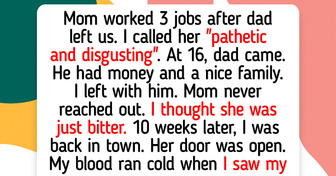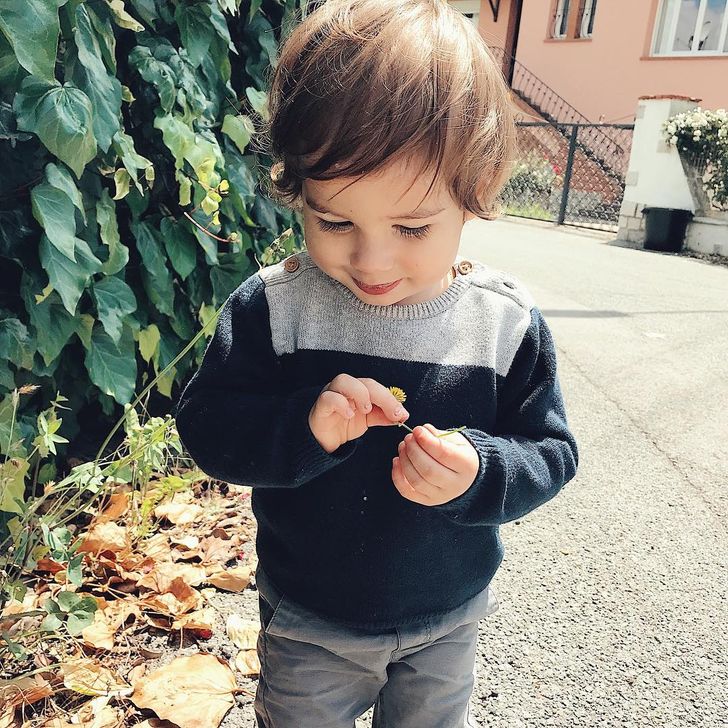Not a single ligne of this is true, greeting from a french.
I Live in France and I Can Tell You Why Parents Here Enjoy Their Lives and Don’t Fuss Over Their Kids

All mothers want their children to go to bed without their help, to behave in stores and in public, and to be quiet when their parents are talking on the phone. And mothers also want to have some free time for themselves and some time to spend with their husbands. It turns out that this is all possible. A woman from Russia went to live in France, got married there, had 2 children, and discovered a unique child-raising system there.
We at Bright Side were fascinated by the incredibly useful information from Anna’s blog, where she shares the rules and methods of child-raising in France that help her deal with her many difficult parenting tasks.
They have a different parenting approach.
During the first months of living with my husband, his daughters from his first marriage came to our place, and I played checkers with the older one — she was 7 years old at the time. I was easy on her because I didn’t want to make her sad if I won. And I was so amazed when her dad played with her as if she were an adult, and of course, he won.
When I told him he could have been easier on her, he said, “Why? She has to be able to lose and deal with these emotions.” Honestly, I had never thought of that. My parents let me win, and now I see a different take on this, and I’m drawing my own conclusions.
The French are very patient, thanks to their parents.
- They don’t run to their babies as soon as they wake up. They give babies some time. They let them lie there and look around. They have enough time to get used to the room and the cradle. In the future, they will need this skill and they won’t be scared of going to their rooms to sleep.
- When adults talk to each other, and there’s a child calling for mom or dad, the French don’t stop talking. They let their kids understand that while 2 people are talking, they have to wait until they finish to start talking.
- When a child is calling their mom to ask for something and the mom is busy, she says, “Let me finish what I’m doing and I’ll come to you in 2 minutes.” The child accepts this fact and waits.
For the local people, patience is a muscle they start training in childhood.
Don’t interrupt your work if your child is asking you to look at a brick tower they built. Just explain to the child what you are busy with and ask them to wait for a little bit. At first, they will wait for just a few seconds. But then, they will be able to wait for minutes. They will learn to entertain themselves while they’re waiting and deal with their frustration. This is an essential skill — this is how a child realizes that they are not the center of the universe.
It’s not very easy to do. I’m getting better at it now, but it was really hard in the beginning.
You can’t feel pity for children.
Of course, I don’t mean the times when a child really needs support — when they fall, get injured, and so on. But when a child trips over something and starts crying, even if they are not hurt, just because they are a little scared, you don’t need to hug them and empathize. If you do, you will only make the situation look even more serious in the kid’s eyes. The consequences:
- Children cry every time they hurt themselves, even if they are not in pain.
- They fall and pretend to be in pain to attract attention.
- In their adult lives, if something doesn’t go as planned, they get really upset and shaken.
A normal reaction is to not pay much attention to it. I’m not a tyrant. I love my kids and I want them to grow up to be mentally strong and resilient.
In the past, child-rearing in France was even stricter.
When we go see my husband’s friend, we often talk about child-rearing. About how things were and how they are today. So, this man had very strict rules in his family when he was a kid.
- He addressed his parents in a very polite way — Vous, Papa.
- During lunch, when the kids were sitting at the table with their parents, they were not allowed to speak. Very often, when a child can already eat on their own, they even sit at a different table.
- Only after finishing their meal are the children allowed to ask for permission to go.
- Children can only play with their toys in their rooms. There is no way that toys would just lie around the house.
Nowadays, it’s really surprising to hear these stories. The times and rules are changing, and children are now allowed to do more.
There’s no need for mothers to feel guilty.
Many mothers feel worried all the time. If their child woke up, it’s because they are hungry, scared, ill, or bored... But French women just live and enjoy their lives. They don’t forget about themselves, about their husbands, or about the things they love. They know that there are no perfect mothers. They are self-organized and they know how to set the right priorities.
How French mothers make their everyday lives easier
- Children and adults eat at the same time. At the age of 2 (approximately), kids start eating the same food as adults.
- Children don’t get to choose what they want to eat: mothers cook and they dictate what the kids will eat.
- You will never see a French mother begging a child to eat.
- French kids always take naps at the same time.
- Parents don’t use “baby talk.”
- They don’t use rude words.
- Children play in their rooms while their parents do what they want.
- Children also need personal space. Of course, they do things together and play together.
- Children are taught to be self-sufficient. For example, they help their parents with chores, set the table, etc. Children feel more confident when they do “adult” stuff.
- Children always go to bed at the same time, so parents can spend some time together in the evening.
You won’t see little kids in restaurants very often.
Children don’t go to restaurants until they are around 4 years old. The thing is, for a French person, having a meal is not about eating to live. When an average French person goes to a restaurant, they do it to rest and have a nice time. This is why French people with small children choose:
- to eat at home.
- McDonald’s.
- a small family cafe.
In France, they don’t trust their kids with just anyone.
If children and parents go for a walk, they do it to enjoy their time together. I was amazed that in local cafes, there are no “children areas” where parents can send their children to play with others while they rest. When I asked my husband about these areas, he said that he would never trust his child with a person he didn’t know.
How children behave at someone else’s place
- The most important rule: children have to ask for permission to start eating, and they should never take food from the table without asking.
- Very often, children take cookies from a bowl and then change their minds and put them back. This doesn’t look very good. So, if you touch something, you eat it or at least put it on your plate instead of putting it back.
- Children ask for permission to leave the table and play. You then wipe their hands, and you know they won’t stain anything, and this is what well-mannered kids do.
- Parents always make sure their kids don’t make too much noise. Of course, sometimes it’s impossible, especially if they are small and there are more than 2 kids. But your job is to let the child know that they are not alone and that they are distracting others. This is how they learn to respect other people.
- There is only one trick to teaching children how to behave at the table. Parents need to have good manners. The most important thing is having dinners together as a family. All family members at the same time. This is the magic time. The sooner you have this tradition, the better.
They don’t take parenthood extremely seriously.
We went for a walk and stopped by a butcher shop. I started talking to the seller about kids. And I said something like, “I understand that what I have now is happiness and I will miss it in 15 years.” And the man replied, “When you are retired, this is when your life just starts. That’s how it was with my wife and me.”
For French people, life starts at the age of 50.
They have an interesting attitude toward divorce.
In France, women file for divorce more often than men. And what’s even more surprising is that they often leave their children with their husbands and start building a new family. I’m not judging — I think that a divorce is often the fault of both partners.
Here’s an example: a local friend of mine lives with a man and 3 of his children from his first marriage. Their mom went to Guadeloupe to be with her new man.
Do you have child-rearing tricks that you can share with other people?
Comments
According to her story, French kids are very calm and well-behaved ?
Related Reads
Bright Siders Shared 20 Eerie Things Children Said That Sent Chills Down Their Spine

15 Moments That Show Kindness Is Quiet but Changes Everything

18 Pets Who Proved They Understand the World Much Better Than We Think

I Won’t Sacrifice My Last Good Years Because My Son Refuses to Grow Up

15 “How We Met” Stories Destined to Become Family Legends

10 Jaw-Dropping Stories Where One Moment Changed Everything

15 Success Moments From Strangers That Deserve All the Golden Buzzers in the World

12 Stories That Prove Real Kindness Is About Actions, Not Words

15 Moments That Prove Kindness Holds Strong When Life Hits Hard

I Refuse to Help My Pregnant Sister, and I Don’t Feel Guilty

I Refuse to Let My Sister Get Away Without Repaying My Money, I’m Not Charity

11 Stories That Prove Kindness Is the Courage We’re Searching For









